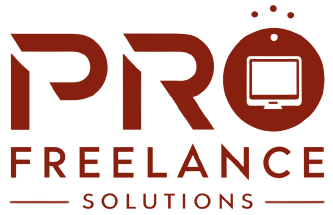In today’s digital age, a website is no longer a luxury for businesses – it’s a necessity. It’s your online storefront, your digital brochure, and a vital tool for generating leads and sales. But simply having a website isn’t enough. To truly thrive online, you need effective website management. Effective website management ensures your site is functioning optimally, delivering a positive user experience, and attracting your target audience.
This article dives deep into the world of effective website management, offering a comprehensive checklist of 10 essential tools you need in 2024. Whether you’re a seasoned entrepreneur or a complete beginner, this guide will equip you with the resources to keep your website running smoothly and boost traffic.
Why Website Management Matters for Small Businesses
For small businesses, effective website management is especially crucial. It allows you to compete with larger companies on a more level playing field. Here’s why:
- Credibility and Trust: A well-maintained website with fresh content and fast loading times projects professionalism and builds trust with potential customers.
- Improved Search Engine Ranking: Effective website management goes hand-in-hand with SEO (Search Engine Optimization). By optimizing your site for search engines, you increase your chances of appearing on the first page of search results, driving more organic traffic.
- Cost-Effectiveness: Compared to traditional marketing methods, maintaining a website is a relatively cost-effective way to reach a wider audience.

10 Essential Tools for Effective Website Management in 2024
Now that we’ve established the importance of effective website management, let’s explore the 10 essential tools you need in your arsenal:
1. Website Builder/CMS (Content Management System)
Why it matters: A website builder or CMS is the foundation of your website. It allows you to create, edit, and manage your website content without needing extensive coding knowledge.
- Popular options for beginners: Wix, Squarespace, Weebly
- For more complex needs: WordPress, Drupal
Choosing the right platform depends on your technical expertise and website goals. Wix and Squarespace offer user-friendly interfaces ideal for beginners, while WordPress provides more flexibility and customization options for experienced users.
2. Website Analytics Tools
Why it matters: Website analytics tools provide valuable insights into your website’s performance. You can track user behavior, understand where your traffic comes from, and identify areas for improvement.
- Popular options: Google Analytics, Hotjar
Google Analytics is a free and powerful tool that offers in-depth data on website traffic, user demographics, and conversions. Hotjar goes a step further by providing visual heatmaps and recordings of user sessions, allowing you to see exactly how visitors interact with your website.
3. SEO Tools
Why it matters: SEO tools help you optimize your website content for search engines, increasing your visibility in search results.
- Popular options: SEMrush, Ahrefs, Moz
These tools offer keyword research, backlink analysis, and on-page SEO audits. By understanding what keywords your target audience is searching for, you can tailor your content to rank higher on search engine result pages (SERPs).
4. Security Software
Why it matters: Website security is paramount. Security software safeguards your website from malware, hacking attempts, and data breaches. A compromised website can not only damage your reputation but also lead to financial losses and legal repercussions.
- Popular options: Sucuri, SiteLock, Wordfence
These tools offer a range of security features, including:
- Website vulnerability scanning: Regularly scans your website for vulnerabilities that hackers could exploit.
- Malware detection and removal: Identifies and removes malicious code from your website.
- Web application firewalls (WAF): Filters incoming traffic and blocks malicious requests.
- Security hardening: Strengthens your website’s security settings to make it more resistant to attacks.
Choosing the right security software depends on the size and complexity of your website, as well as your specific security needs. Some website builders offer basic security features, but for more comprehensive protection, investing in dedicated security software is recommended.

5. Backup and Recovery Tools
Why it matters: Unexpected technical issues can happen. Having a backup and recovery tool ensures you can restore your website to a previous version if something goes wrong. This could be due to a plugin conflict, a human error, or even a server malfunction.
- Popular options: UpdraftPlus (WordPress), CodeGuard
These tools offer automated backups of your website files and databases, allowing you to quickly restore your site in case of data loss or corruption. Regularly backing up your website provides peace of mind and minimizes downtime in case of unforeseen circumstances.
6. Image Optimization Tools
Why it matters: Images are essential for any website, but large image files can slow down your website’s loading speed. Image optimization tools help you compress images without sacrificing quality.
- Popular options: TinyPNG, Smush
Fast loading times are crucial for a positive user experience and SEO. Search engines tend to favor websites that load quickly, so optimizing your images can give you a ranking boost. Additionally, faster loading times can improve conversion rates and keep visitors engaged on your website.
7. Content Management Tools
Why it matters: Creating high-quality content is essential for attracting and engaging your target audience. Content management tools help you streamline the content creation process, collaborate with team members, and schedule content publishing in a way that goes beyond basic writing assistance.
- Popular options: Grammarly, Hemingway Editor, Asana, Trello, Evernote
Grammarly helps identify and correct grammatical errors, typos, and plagiarism in your writing. As mentioned earlier, clear and concise writing is crucial for user engagement.
- Hemingway Editor analyzes the readability of your content, suggesting ways to simplify your sentences and improve clarity. This is especially helpful for reaching a wider audience and ensuring your message resonates with your target demographic.
Asana and Trello are project management tools that allow you to assign content creation tasks, track progress, collaborate with writers, editors, and designers. These tools establish clear workflows, ensure deadlines are met, and streamline communication within your team.
- Evernote is a note-taking and content organization tool. It allows you to capture ideas, research topics, and store multimedia content, all in one central location. This can be particularly beneficial for bloggers, freelancers, or marketing agencies managing multiple content projects.
8. Social Media Management Tools
Why it matters: Social media is a powerful tool for promoting your website and content, but managing multiple platforms can be time-consuming. Social media management tools help you schedule and publish posts across multiple platforms, track engagement metrics, and analyze your social media performance in a more comprehensive way.
- Popular options: Hootsuite, Buffer, Sprout Social
These tools allow you to schedule posts in advance, saving you time and ensuring consistent content flow across your social media channels. Additionally, they offer features like social media listening, which allows you to track conversations about your brand or industry online. This valuable data can be used to refine your content strategy and engage with your audience more effectively.
For example, Sprout Social offers a feature called “Sprout Q&A” that allows you to monitor brand mentions across various social media platforms and respond to customer inquiries directly within the tool. This streamlines your social media customer service efforts and fosters positive brand interactions.
9. Email Marketing Tools
Why it matters: Email marketing is a great way to nurture leads, build relationships with customers, and promote your products or services beyond simple sales pitches.
- Popular options: Mailchimp, Constant Contact, ConvertKit
Email marketing tools allow you to create targeted email campaigns based on user demographics, interests, and purchase history. This level of personalization can significantly improve conversion rates and increase customer engagement.
Here are some examples of how you can leverage email marketing tools:
- Welcome series: Create an automated email series to welcome new subscribers and introduce them to your brand or products.
- Promotional campaigns: Announce new product launches, special offers, and discount codes through targeted email campaigns.
- Nurturing campaigns: Send educational content and resources to leads who haven’t converted yet, keeping your brand top-of-mind and fostering trust.
- Customer appreciation emails: Show your appreciation to loyal customers with exclusive discounts or personalized offers.

10. Performance Monitoring Tools
Why it matters: Website performance is crucial for user experience and SEO. Performance monitoring tools help you identify and troubleshoot website speed issues, but the benefits extend beyond basic loading times.
- Popular options: Google PageSpeed Insights, Pingdom Website Speed Test, GTmetrix
These tools analyze your website’s loading speed, mobile-friendliness, and overall performance. They provide actionable recommendations for improvement, such as optimizing image sizes, reducing HTTP requests, and improving server response times.
However, website performance goes beyond just speed. These tools can also offer insights into website security vulnerabilities, broken links, and core web vitals, which are essential metrics for user experience. By addressing these issues, you can ensure your website offers a smooth and secure browsing experience for your visitors.
Conclusion
Effective website management is an ongoing process, but with the right tools in your arsenal, you can ensure your website is running smoothly, attracting visitors, and achieving your business goals.
By utilizing website builders, analytics tools, SEO tools, and the suite of other resources mentioned above, you can streamline website management tasks, optimize your content, and boost traffic. Remember, a well-maintained website is a valuable asset for any business or entrepreneur in today’s digital landscape.
Effective website management is an ongoing process, but with the right tools and expertise, you can achieve online success. Feeling overwhelmed? We offer website management services that streamline tasks and optimize your website. Contact us today for a free consultation!

